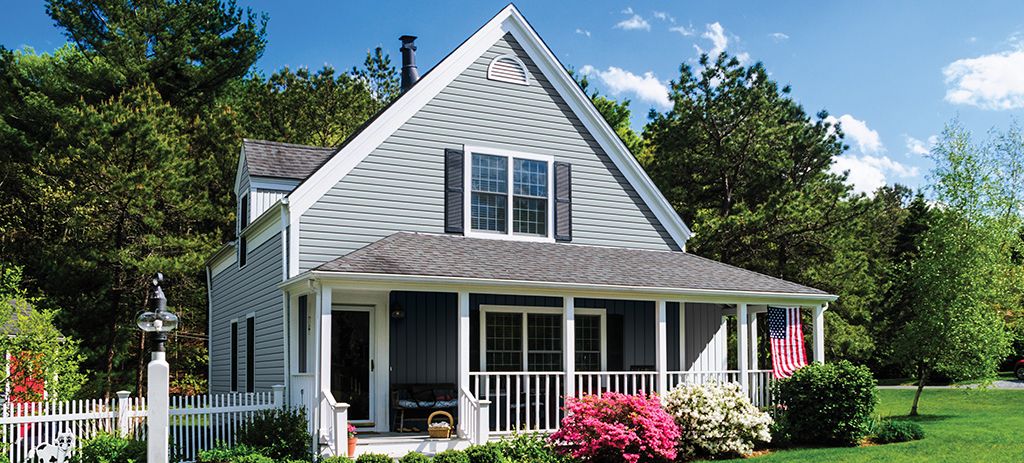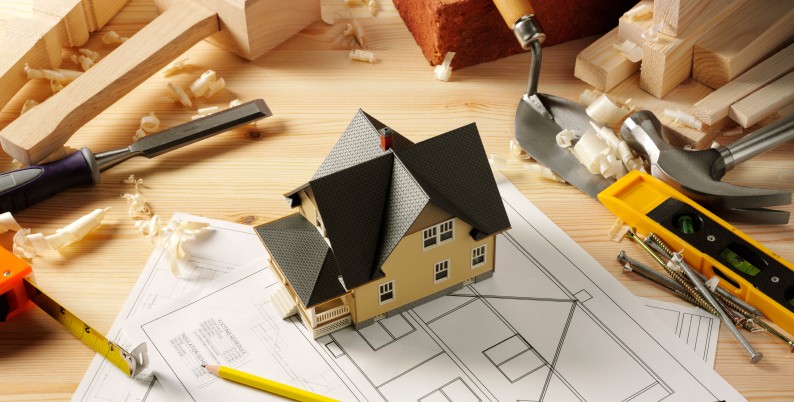How to Choose the Best Home Improvement Contractors
Contents
- 1 Introduction
- 2 Strengths and Weaknesses of Choosing Home Improvement Contractors
- 3 Table: How to Choose the Best Home Improvement Contractors
- 4 Frequently Asked Questions (FAQs)
- 4.1 1. Can I do the home improvement project myself instead of hiring a contractor?
- 4.2 2. How long does it typically take to complete a home improvement project?
- 4.3 3. What should I do if I’m not satisfied with the work of a contractor?
- 4.4 4. Should I always choose the contractor with the lowest quote?
- 4.5 5. How can I verify the licenses and insurance of a contractor?
- 4.6 6. Can I negotiate the terms and pricing with a contractor?
- 4.7 7. What if I want to make changes to the project after it has started?
- 5 Conclusion
- 6 Author
Introduction
Hello Readers,
Welcome to our guide on how to choose the best home improvement contractors. Making improvements to your home is an exciting project, but finding the right contractor can be a daunting task. In this article, we will provide you with valuable tips and advice to help you make an informed decision and ensure your home improvement project is a success.
Choosing the right contractor is crucial as it can directly impact the quality and outcome of your project. With so many options available, it can be overwhelming to know where to start. However, by considering certain factors and following our step-by-step guide, you can find the best home improvement contractor that meets your needs and budget.
1. Determine Your Needs
The first step in choosing the best home improvement contractor is to clearly define your project goals and needs. Are you looking to remodel your kitchen, renovate your bathroom, or add an extension to your home? Having a clear vision of what you want to achieve will help you select a contractor with the right expertise and experience in your specific project area.
Additionally, consider your budget, timeline, and any specific requirements you may have. This will help you filter and narrow down your choices and find contractors who can deliver on your expectations.
2. Research and Gather Recommendations
Once you have a clear understanding of your project needs, it’s time to do some research and gather recommendations. Start by asking friends, family, and neighbors who have recently completed home improvement projects for their recommendations. They can provide valuable insights about their experiences and the contractors they worked with.
You can also utilize online platforms and directories that specialize in connecting homeowners with local contractors. Websites like Angie’s List, HomeAdvisor, and Houzz have extensive databases of contractors, along with reviews and ratings from previous clients. Take the time to read through these reviews and shortlist potential contractors based on positive recommendations.
3. Check Licenses and Insurance
Before considering any contractor, it is essential to verify their licenses and insurance. Different states and countries have specific licensing requirements for contractors, ensuring that they adhere to local building codes and regulations. Checking for proper licensing will give you peace of mind knowing that you are working with a qualified professional.
Alongside licenses, inquire about their insurance coverage. A reputable contractor should have general liability insurance and workers’ compensation insurance. This safeguards you from potential liability in case of accidents or damages that may occur during your project.
4. Evaluate Experience and Portfolio
The experience and portfolio of a contractor play a crucial role in your decision-making process. Look for contractors who have been in the industry for several years and have successfully completed projects similar to yours. Ask for references and take the time to visit their previous worksites if possible.
Reviewing their portfolio will give you an indication of the quality of their workmanship and their ability to handle projects of various sizes and complexities. Additionally, ask about their expertise in the specific materials and design styles you are interested in to ensure they are a good fit for your project.
5. Request Multiple Quotes
When comparing contractors, it is vital to request multiple quotes for your project. This will help you assess their pricing structure, understanding of your project requirements, and the timeline they propose. Be wary of quotes that seem too good to be true, as they may indicate inexperience or lower-quality materials.
Take the time to review and compare the quotes in detail. Evaluate the breakdown of costs, payment schedules, and any additional fees or contingencies they include. It is essential to have a clear understanding of what is covered in the quote to avoid any surprises or misunderstandings later on.
6. Conduct Interviews
Before making your final decision, conduct interviews with potential contractors to get a better sense of their communication skills, professionalism, and ability to understand your vision. Prepare a list of questions related to your project requirements, timeline, and any concerns you may have.
During the interview, pay attention to how well they listen to your needs, ask clarifying questions, and address your concerns. A good contractor should be able to provide clear and concise answers while being transparent about their process and methodology. Trust your instincts and choose a contractor with whom you feel comfortable and confident.
7. Check References
Lastly, don’t forget to check the references provided by your potential contractors. Contact previous clients and inquire about their overall experience, the quality of work delivered, adherence to timelines, and any issues encountered throughout the project. Their feedback will give you additional insights into the contractor’s professionalism and reliability.
Strengths and Weaknesses of Choosing Home Improvement Contractors
Strengths:
Choosing the best home improvement contractor comes with many benefits, including:
- Expertise and Experience: Home improvement contractors have the necessary expertise and experience to handle various projects, ensuring quality workmanship.
- Time and Cost Efficiency: Contractors can efficiently manage project timelines and budgets, saving you time and potential costs.
- Access to Resources: Contractors have access to a network of reliable subcontractors, suppliers, and specialized equipment required for your project.
- Licensing and Insurance: Reputable contractors are licensed and insured, providing you with protection and peace of mind.
- Design and Technical Knowledge: Contractors can offer valuable insights and recommendations based on their design and technical knowledge.
- Coordination and Planning: Contractors oversee the coordination of different trades involved in your project, ensuring a smooth process from start to finish.
- Warranty and After-Sales Service: Many contractors offer warranties on their workmanship, providing you with added assurance in case of any issues.
Weaknesses:
While there are numerous benefits, it is also important to consider the potential weaknesses and challenges of choosing home improvement contractors:
- Cost: Hiring a contractor may come with additional costs compared to a DIY approach. However, the cost is often justified by the quality and professionalism of the work delivered.
- Reliance on Others: When working with contractors, you rely on their availability and the performance of their subcontractors, which can occasionally lead to delays or communication challenges.
- Quality and Communication: Not all contractors provide the same level of quality and communication. It is crucial to thoroughly vet and choose a contractor with a proven track record.
- Loss of Control: Hiring a contractor means relinquishing some control over the project management process, as they oversee several aspects on your behalf.
- Expectation Alignment: Ensuring clear communication and alignment of expectations with your contractor is vital to avoid misunderstandings and achieve the desired outcome.
- Legalities and Contracts: It is essential to thoroughly review and understand any contracts or agreements with your contractor before proceeding with the project.
- Availability: Depending on their workload, the contractor you prefer may not be available within your desired timeframe, potentially requiring you to adjust your project schedule.
Table: How to Choose the Best Home Improvement Contractors
| Factors | Points to Consider |
|---|---|
| Determine Your Needs | Define project goals, budget, timeline, and requirements |
| Research and Gather Recommendations | Ask friends, family, and browse online platforms for recommendations |
| Check Licenses and Insurance | Verify contractor’s licenses and insurance coverage |
| Evaluate Experience and Portfolio | Assess contractor’s experience, previous works, and expertise |
| Request Multiple Quotes | Compare and review quotes from multiple contractors |
| Conduct Interviews | Interview potential contractors to assess communication and professionalism |
| Check References | Contact previous clients and inquire about their experiences |
Frequently Asked Questions (FAQs)
1. Can I do the home improvement project myself instead of hiring a contractor?
While it is possible to take a DIY approach for certain home improvement projects, it is important to consider your skills, experience, and the complexity of the project. Hiring a contractor ensures professional workmanship and saves you time and potential issues.
2. How long does it typically take to complete a home improvement project?
The duration of a home improvement project varies depending on the scope, complexity, and size of the project. Your contractor will provide you with an estimated timeline based on their experience and the specific requirements of your project.
3. What should I do if I’m not satisfied with the work of a contractor?
If you are unhappy with the work of a contractor, communicate your concerns directly with them. Reputable contractors will prioritize customer satisfaction and address any issues promptly. If necessary, refer to your contract and seek legal advice if resolutions cannot be reached.
4. Should I always choose the contractor with the lowest quote?
While cost is an important factor, it should not be the sole determining factor. It is advised to choose a contractor who offers competitive pricing combined with the necessary expertise, experience, and a proven track record for delivering high-quality work.
5. How can I verify the licenses and insurance of a contractor?
You can verify a contractor’s licenses by contacting the licensing authority in your state or country. For insurance verification, request proof of insurance from the contractor and contact the insurance company directly to ensure their coverage is current and valid.
6. Can I negotiate the terms and pricing with a contractor?
It is possible to negotiate certain terms and pricing with a contractor. However, it is important to maintain a fair and professional approach. Remember that quality workmanship, reliability, and adherence to timelines are equally important factors to consider.
7. What if I want to make changes to the project after it has started?
Changes to the project scope or design after it has started may incur additional costs and require adjustments in the timeline. It is essential to communicate any desired changes promptly with your contractor to evaluate the feasibility and implications of those changes.
Conclusion
In conclusion, choosing the best home improvement contractor requires careful consideration and thorough research. By following the steps outlined in this guide and considering the strengths and weaknesses of hiring contractors, you can ensure a successful and satisfying home improvement experience.
Remember to determine your needs, gather recommendations, check licenses and insurance, evaluate experience and portfolio, request multiple quotes, conduct interviews, and check references. The provided table summarizes these factors for easy reference.
Lastly, prioritize clear communication, trust your instincts, and choose a contractor who not only matches your project requirements but also understands your vision. With the right contractor by your side, your home improvement project will transform your space, enhance your lifestyle, and provide lasting enjoyment for years to come.
Thank you for reading and best of luck with your home improvement endeavors!
Disclaimer: The information provided in this article is for general informational purposes only and should not be considered as professional advice. Always consult with a qualified home improvement professional for specific guidance tailored to your individual needs and circumstances.










